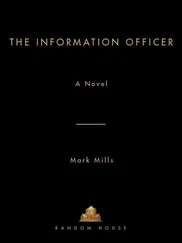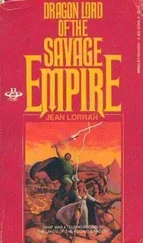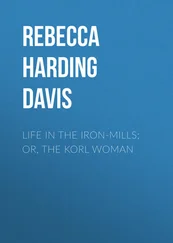Mark Mills - The Savage Garden
Здесь есть возможность читать онлайн «Mark Mills - The Savage Garden» — ознакомительный отрывок электронной книги совершенно бесплатно, а после прочтения отрывка купить полную версию. В некоторых случаях можно слушать аудио, скачать через торрент в формате fb2 и присутствует краткое содержание. Жанр: Старинная литература, на английском языке. Описание произведения, (предисловие) а так же отзывы посетителей доступны на портале библиотеки ЛибКат.
- Название:The Savage Garden
- Автор:
- Жанр:
- Год:неизвестен
- ISBN:нет данных
- Рейтинг книги:4 / 5. Голосов: 1
-
Избранное:Добавить в избранное
- Отзывы:
-
Ваша оценка:
- 80
- 1
- 2
- 3
- 4
- 5
The Savage Garden: краткое содержание, описание и аннотация
Предлагаем к чтению аннотацию, описание, краткое содержание или предисловие (зависит от того, что написал сам автор книги «The Savage Garden»). Если вы не нашли необходимую информацию о книге — напишите в комментариях, мы постараемся отыскать её.
The Savage Garden — читать онлайн ознакомительный отрывок
Ниже представлен текст книги, разбитый по страницам. Система сохранения места последней прочитанной страницы, позволяет с удобством читать онлайн бесплатно книгу «The Savage Garden», без необходимости каждый раз заново искать на чём Вы остановились. Поставьте закладку, и сможете в любой момент перейти на страницу, на которой закончили чтение.
Интервал:
Закладка:
He had never glorified his parents' relationship, never held it up to others or himself as a model marriage. But he had always expected it to be there, them to be there, together. It was one of those things you took for granted, like the passing of the seasons. Harry was of the opinion that it was something they had to work out for themselves. Adam's instinct was to head straight home and help in whatever way he could.
A few hours of welcome oblivion had taken the edge off his panic. It also helped that he had something else to think about from the moment he swung his legs off the bed.
He was the last to appear at breakfast. Even Antonella was already there. She was as eager as Signora Docci to get going immediately, although they did allow him to throw back a small cup of dense black coffee first.
His sprained ankle had ballooned grotesquely overnight, and it screamed in protest during the long slow walk down from the villa. His mind, however, was on other things, toying with how best to reveal the story. In the end he just told it the way it was, taking each component of the garden in turn and exposing both its faces.
Signora Docci fell silent when Adam pointed out the anagram of inferno on the triumphal arch, and she barely spoke from that moment on.
Dante's Divine Comedy was the key text, he explained, not Ovid's Metamorphoses, with its tales of gods and goddesses and all their shenanigans. Ovid was a red herring. He was to be ignored.
The story of Daphne and Apollo in the grotto was little more than a front, a cloak, a disguise. The sculptural arrangement needed to be looked at as a snapshot of a purely human drama: a young couple frolicking merrily while an older gentleman brooded nearby. It had nothing to do with the ancient myth it purported to represent. It was a depiction of Flora and her lover and a disconsolate Federico Docci.
Harry had provided the breakthrough with his throwaway comment about the look on Flora's face. From her perch on the second level of the amphitheater, the adulterous wife was staring longingly at the distant figure of Apollo in the glade of Hyacinth. Apollo's unmasking as Flora's lover was the key that unlocked the mystery, exposing the whole masquerade. There was another clue to the importance of the sun god in Federico Docci's hidden design: a literary clue buried in the text of The Divine Comedy, when, just after he has ascended into Paradise, Dante calls on Apollo for inspiration, to help him in the final stages of his journey.
What else did the grotto reveal once its characters had been exposed as the three parties to a Renaissance love triangle? There was Federico Docci—in the guise of Peneus—clutching an urn, filling the marble trough with water, which then overflowed into the gaping mouth of Flora, her face set in relief in the floor—no longer a river god providing sustenance to the goddess of flowers, but Federico giving his wife something to drink. What, though? If that symbol of purity, the unicorn bent over the trough, had never possessed its horn, as the sixteenth-century drawing suggested, then whatever it was, it was undrinkable.
"Poison . . ." said Signora Docci quietly.
"I think so."
"But you can't be sure."
"There's another clue. We'll come to it."
From the grotto they traveled clockwise around the circuit, stopping at the glade of Adonis, with its sculpture of Venus grieving over her dead love. There was no need to explain the arrangement to Signora Docci and Antonella now that the central conceit of Federico's deception had been laid bare. Ignoring the "official" identities of the characters on show, it was a representation of Flora grieving over her dead lover.
"You think Federico killed him?" asked Antonella.
"It looks that way. In the myth, Adonis was killed by a wild boar."
"Our coat of arms . . ." muttered Signora Docci.
"Exactly."
Signora Docci appeared a little overwhelmed by the revelation. She said nothing more, but she did pay Adam a heartfelt compliment with her eyes.
At the foot of the garden stood the Temple of Echo, out the front of which lay Narcissus, peering into the octagonal pool: two youngsters, their love destined to fail, death their reward. If the correspondence was to be believed, Flora—like Echo—had died a slow and lingering death. That poison had been the cause of it was supported by the inscription running around the architrave beneath the dome: The hour of departure has arrived, and we go our separate ways, I to die, and you to live. Which of these two is better only God knows. The words were those of Socrates, spoken shortly before he took his own life, poisoning himself with hemlock.
The glade of Hyacinth, the final element in the garden, mirrored the glade of Adonis on the other side of the valley. But whereas the first glade they had visited portrayed the death of Flora's lover, this one told the death of Flora herself.
In many ways it was the most interesting part of Federico Docci's carefully constructed program. It revealed the most about the man behind the murders, offering insights into his thinking. Because Federico Docci had found himself faced with a problem.
It was easy to imagine his predicament.
The disguise is perfect. The garden he has laid out in loving memory of his wife—the garden he wishes the world to take at face value—is thematically flawless. Flora is made to live again as Flora goddess of flowers. He sets her at the head of the garden, a queen surveying her subjects—Adonis, Narcissus, Hyacinth— each of whose tragic death was marked by the genesis of a flower. Tragedy, Survival, Renewal, Metamorphosis, Death and Resurrection: the themes weave together effortlessly. Only the story of Hyacinth presents a problem.
It is ideal for his purposes, and certainly too good to consider abandoning. Zephyrus, the west wind, driven mad by his jealousy of Apollo, kills the object of their mutual affections. It's perfect, except for the fact that Hyacinth was a Spartan prince, not a princess. There is a problem with the gender. Federico gets round it by placing Hyacinth face down in the dirt, his/her hair covering his/her face, his/her body draped in a bulky robe.
It's a cheat, not up to his usual high standards, and Federico knows it. He doesn't mind too much, though, because it obliges him to leave behind a clue—the unusual posing of Hyacinth—and he has to leave at least one clear clue in each section of the garden. That's obviously the challenge he has set himself. He wants people to know the truth, but only once there's little risk to himself. That is surely the reason he waits almost thirty years, till his own life has all but run its course, before laying out the garden.
There was nothing more for Adam to say, so he fell silent. Harry slung an arm around his shoulder and grinned at the ladies.
"Not bad, eh? For a young'un."
"No, not bad at all."
Antonella was far more fulsome in her praise, proposing a celebratory dinner that evening in honor of Adam's remarkable discovery.
Adam and Harry assisted a flagging Signora Docci back to the amphitheater, each of them gripping a bony elbow, Antonella bringing up the rear. They speculated about the identity of Flora's lover, concluding that it must surely have been one of the many artists and writers who attended Federico's cultural gatherings at Villa Docci. A younger man, no doubt, more Flora's age than her husband's. Or why not a woman? This was wishful thinking on Harry's part, though not entirely misguided. Tullia d'Aragona, the Roman poetess and courtesan, had disappeared abruptly from the Florentine scene in 1548—the year of Flora's death. Maybe there was a connection, after all. Adam kept these musings to himself.
Arriving at the amphitheater, Signora Docci asked to rest awhile on the stone bench. She also asked to be left alone.
Читать дальшеИнтервал:
Закладка:
Похожие книги на «The Savage Garden»
Представляем Вашему вниманию похожие книги на «The Savage Garden» списком для выбора. Мы отобрали схожую по названию и смыслу литературу в надежде предоставить читателям больше вариантов отыскать новые, интересные, ещё непрочитанные произведения.
Обсуждение, отзывы о книге «The Savage Garden» и просто собственные мнения читателей. Оставьте ваши комментарии, напишите, что Вы думаете о произведении, его смысле или главных героях. Укажите что конкретно понравилось, а что нет, и почему Вы так считаете.











